I am passionate about providing high quality teaching and education to all students. I am a leader in providing interventions for children with SEN – including making my own schemes and resources for schools all over the world. As well as a teacher, I am a mother of 3, the eldest has dyslexia, and the youngest has a stammer, ADD and dyslexia. I have personal experience in understanding the difficulties faced with those who are neurodivergent.
My strength as a class teacher has always been having a calm, productive classroom and that is based on the relationships I make with the children. I spent 4 years working in a challenging school with my classes ranging from 70% – 80% SEN and all of my children thrived. I worked closely with the KS1 nurture unit where I planned lessons for the children in my class who attended. Social stories were created by myself and communication groups were lead by me.
My experience teaching young people with dyslexia; I currently teach 5 children with dyslexia. My daughter and son are dyslexic so I have also experienced this firsthand personally. I am level 3 trained and currently studying towards being level 5 trained.
I understand that dyslexia can present in different ways, whether that is with reading, writing, spellings, maths or working memory issues. As mentioned before, I like to use a multi-sensory approach with activities so my students are experiencing their learning in visual, audio and kinetically. If students have visual stress, I always use pale-coloured backgrounds and teaching aids to help with the stress. Having first experienced the process of getting a diagnoses for my daughter 9 years ago and her feeling desponded with English, it was great to show and teach her how she just needed a different style of learning and revision – this resulted in a very motivated child – receiving a 9 for her GCSE English exam, and currently predicted three A*s for her A levels. It is very important to me that children know that a diagnoses of dyslexia does not mean that they cannot achieve what they have set out to achieve!
My experience teaching young people with ADHD; I have worked with children for 23 years and have taught children with ADHD on medication and without medication. My son has ADHD – who I also teach. I understand that some children may need fidget toys, brain breaks, multi-sensory learning so that they are moving as well as learning. ADHD can present in many forms. I enjoy teaching in a multi-sensory way regardless, and finding ways to engage the child through their interests so that they stay focused.
My experience teaching young people with working memory difficulties; This is an area I am very familiar with as many of the students I teach do struggle with working memory and this can be very common with those who have dyslexia and ADHD.
My style of teaching is adapted for each child, some children may not be able to hold more than one instruction in their head, so we work from where they are and start with one instruction, progressing and monitoring how they cope when adding another instruction. I teach children to recognise how they like to learn – some children are visual and enjoy note taking with pictures to help, some children use recordings, some children make up rhymes and songs to help prompt them with certain activities – it is about understanding the child and giving them strategies to use that works for them.
As an example, I teach a young person who has lovely ideas for stories but struggles with writing these ideas down and writing stories fluently. For this young person, it was important to learn how to scribe her notes on post its in any order that they came, and then be able to rearrange her notes in the order she wanted. Writing a story and thinking about punctuation and grammar was a task that was very difficult for her, so I taught her how to proofread efficiently – she was then able to go from writing one paragraph to detailed stories with punctuation once she learnt how to organise her thoughts.
My experience teaching Primary Maths and English; I am a maths specialist who owns a maths website where we have over 30,000 teachers subscribed to – my knowledge of primary school maths and how to teach in different ways is superb. I have developed my own scheme of work in which OFSTED has praised schools using my planning and lessons. I am currently in the stages of creating interventions for each strand of maths for year groups 1 – 6. I have also developed a literacy website for teachers, which is in its early days but shows my passion for literacy. I have lead phonics, planned literacy for complete year groups and currently I am creating an English curriculum for schools teaching from the National Curriculum. I am Level 3 trained in practical solutions for dyslexia, where many strategies in making progress in English can be used for children who do not have dyslexia to make a real difference in their understanding and outcomes in in English.
My skills and experience teaching executive functioning and study skills; I have personal experience as I teach my own children who have dyslexia and ADD executive functioning skills. We break down each skill that they are having trouble with and use different strategies to help overcome their difficulties. The main skills that I have worked on are time management/organisation, working memory, flexibility, regulation , emotional self-control and completing tasks.
My experience working with young people to boost their confidence and self-esteem; When you work with children who have SEN, many have low confidence and self-esteem, I am really pleased to say that the majority of my parents that I work with will say that their children’s confidence in learning has had a huge boost- this then relates to their self esteem. When a child finds it hard to access learning they will often say ; I can’t do this’ or negative things about themselves and this is where I come in a remind them each time of progress that they have made and make sure that I teach in the way that they learn.
My specialist experience providing engaging sessions to inspire a love of learning; In general, my teaching has always been hands on and engaging – whether this was with a class on 30+, small group sessions or 1:1 – my lessons are engaging. Using fun pictures/ audio clips/ acting / building towers with paper cups, using scrabble letters/ quizzes/ guessing games/ coloured pens for writing in paragraphs- I like to keep my lessons engaging so that the student looks forward to their lessons. During lockdown I created fun hands on maths boxes for children called Maths Minds, and had a great response from parents!
My skills and experience supporting students to develop their independence; As I teach my children, I like to scaffold to help them access their learning, but explaining that as we go through the lessons, we slowly remove some of these scaffolds. For example – I recently taught a unit on persuasive writing. At first the child copied some persuasive phrases from a mat. She then learnt one of these, then another and by the half term she no longer needed her mat but was using the phrases she had learnt over the 6 weeks. It is important that I teach how to become independent as the child becomes more confident and able to do so.
My experience teaching young people with Autism;I have taught many children over the years with autism. I recognise that every child has different needs and because I have taught lots of children with autism I can adapt my teaching to what is needed, from having sensory overload, noise overwhelm, difficulty with vague instructions and PDA. I am able to identify sensory and processing needs and how to create a calm environment in where a child feels safe and ready to learn. I have taught autistic children who are verbal and non verbal – relying on visuals to communicate.
My experience teaching young people with PDA;As mentioned above, I have worked and taught children diagnosed with PDA. I have used strategies such as using the child’s interests within my teaching to motivate and place less of a demand in terms of motivation for the child to engage in their learning. I’ve been able to adapt my teaching in a more collaborative way in order for the child to feel less resistance in their learning- this deescalates the feelings of anxiety that can be built up if a child feels like there are a lot of demands for them. There may be certain questions that triggers a child, and I have worked on finding different ways to phrase questions. Making sure that the environment is appropriate is very important too.
My experience teaching young people with Sensory/auditory processing needs; As above, with my experience of teaching children with autism, ADHD and dyslexia – this can also come with sensory and auditory processing needs.
Depending on the child- I adapt what is needed towards the child. I have taught children who cannot write on paper and pencil due to the sounds making them feel unregulated – so we went through different types of pens/ pencils and paper types until I found one that was suitable for the child.
I ensure I don’t give too many instructions – overwhelming those who need to focus on one instruction and not be interrupted until that is complete.
I use a range of silent timers, once again depending on the need of the child and their sensory needs.
My experience teaching young people with Anxiety; I currently tutor 1:1 and have children who have anxiety due to not being able to access learning in the classroom. I can recognise that some children who have SEN, have probably heard a lot of the times that they are doing something wrong – thus causing anxiety when either learning something new, or just being in the classroom in general. Children are worried they will get an answer wrong, worried that they don’t already know it, worried that hey won’t understand the concept and an adult might shout at them. I have had the privilege of building up these children’s confidence as they start to understand more of their learning and also resilience as we start exploring concepts that they don’t know and may get wrong at times.
I have a nice balance of challenging children, but knowing when to do this, and sometimes for the confidence boost I will adapt questions that I know they can answer, before moving on to explaining the new challenge and being explicit in things being tricky at first but we keep going!
My experience teaching young people with Sensory/auditory processing needs; As above, with my experience of teaching children with autism, ADHD and dyslexia – this can also come with sensory and auditory processing needs.
Depending on the child- I adapt what is needed towards the child. I have taught children who cannot write on paper and pencil due to the sounds making them feel unregulated – so we went through different types of pens/ pencils and paper types until I found one that was suitable for the child.
I ensure I don’t give too many instructions – overwhelming those who need to focus on one instruction and not be interrupted until that is complete.
My skills and experience supporting students with speech and language needs; I have taught children with moderate speech and language needs to children who are non verbal. I have personal experience with speech and language therapists as my son has a stammer and there are many strategies and techniques that can be used as an umbrella with speech and language needs.
I am aware that some children need an adjustment in how fast verbal instructions are given, I have taught where I use instructions alongside pictures to support understanding. This helps both ways, where children also use pictures to show me how they are feeling about the lesson and their understanding of what is being taught. I have a friendly, patient approach within my lessons, so that children know that they can take their time to communicate their needs and they feel safe and comfortable to do this.
My experience teaching young people with challenging behaviour; As mentioned previously, I trained and taught in a challenging school with challenging behaviour regularly. I have taught children with PDA and ODD – which has enabled me to learn ways to manage behaviours so that children do not become unregulated and behaviour doesn’t escalate. I like to focus on getting to know the child and building a good relationship with them, which always helps with managing challenging behaviour. I keep lessons interesting and tailored to children’s interests which helps as children display less challenging behaviour when they are interested in their learning.
My experience teaching Social Communication & Language Skills; I have written many social stories in my time as
a primary school teacher and have also lead a communication group with a group of my children who attended a nurture group. I
planned drama and acting scenarios in a fun way for the children where I would model language used to develop their
communication and social skills.







